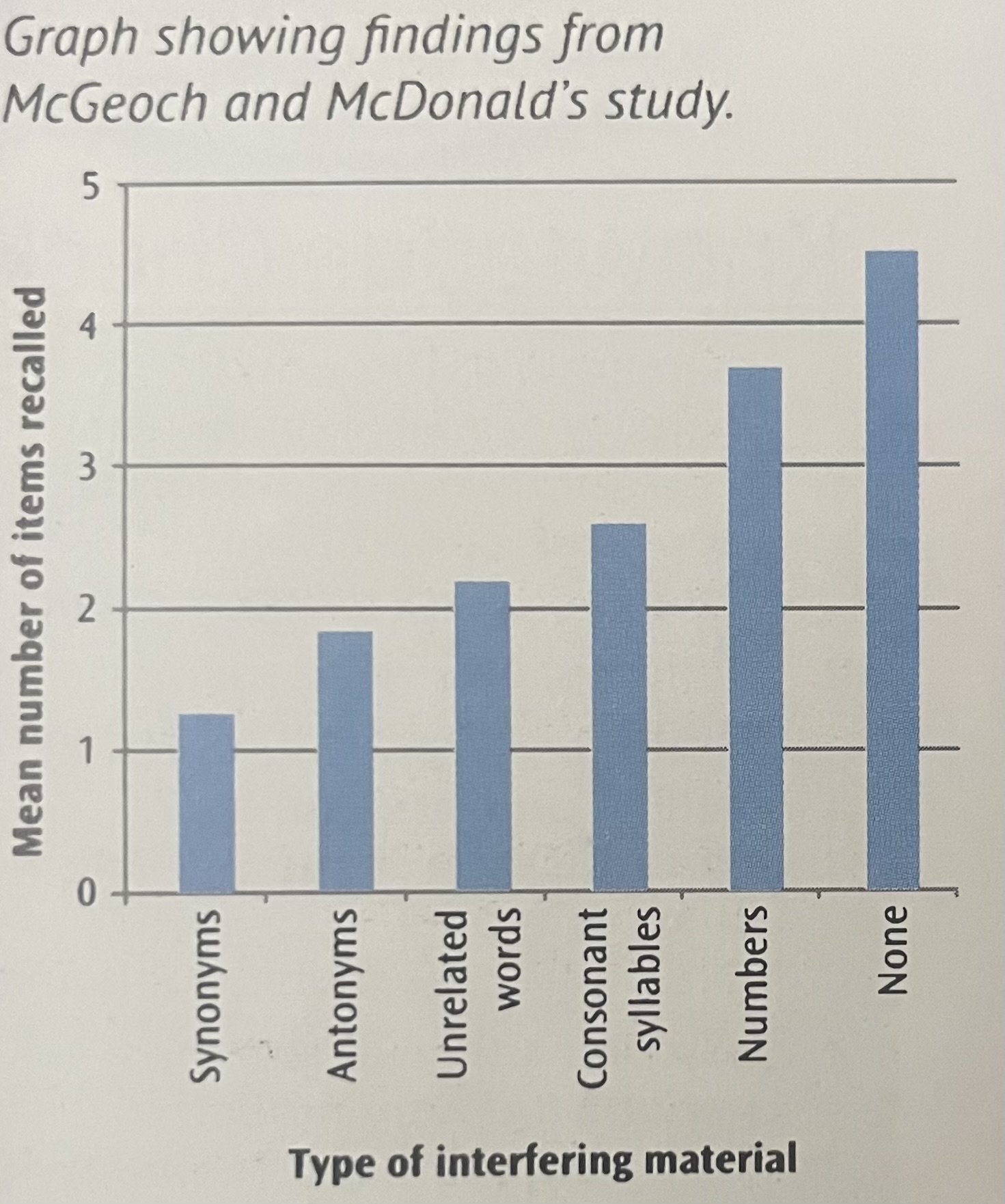Psychology: Memory - Explanations for forgetting: Interference
1/7
There's no tags or description
Looks like no tags are added yet.
Name | Mastery | Learn | Test | Matching | Spaced |
|---|
No study sessions yet.
8 Terms
Interference
When two pieces of info disrupts eachother.
Forgetting occurs because we can't get access to memories even though they’re available.
Interference is worse when memories are similar
Proactive interference (PI)
Occurs when an older memory disrupts a newer one
Retroactive interference (RI)
Occurs when a newer memory disrupts an older one
McGeoch and McDonald (1931) Effects of similarity: Procedure
Pps were asked to learn a list of words completely accurately, then they were given a new list to learn
Group 1: Synonyms
Group 2: Antonyms
Group 3: Unrelated
Group 4: Consonant syllables
Group 5: 3-digit numbers
Group 6: Control group (no new list)
McGeoch and McDonald (1931) Effects of similarity: Findings
Performance depend on the nature of the second list. The most similar material produced worst recall, showing that interference is strong when memories are similar.

Strength - some support for interference in real-world situations
Baddeley and Hitch asked rugby players to recall names of teams they had played against
Players didnt play the same number of games due to things like injuries. Those who played more games had worse recall
Shows interference operates in slme everyday situations increasing validity of theory
Limitation - interference effects may be overcome using cues
Tulving and Psotka gave pps lists of words organised into categories
Recall of first list was 70% but fell with each new list, when given a cued recall test, recall rose to 70% again
Shows that interference causes a temporary loss of access to material still in LTM - not predicted by the theory
Strength - Support from drug studies
Material learned just before taking drugs recalled better than a placebo group one week later
The drug stopped new info reaching brain areas that process memories, so it could not retroactively interfere with stored info
Shows that forgetting is due to interference - reducing the interference reduced the forgetting